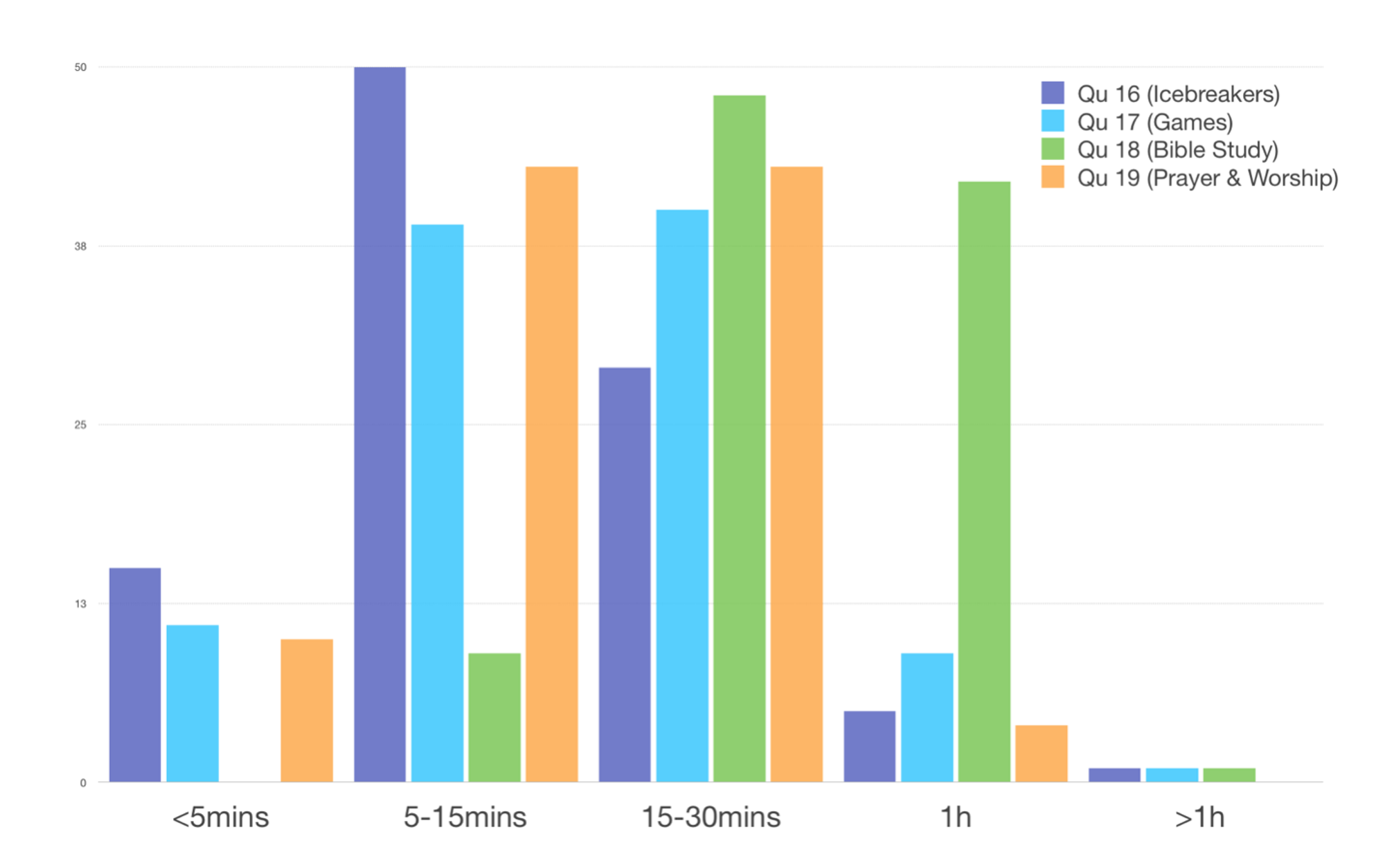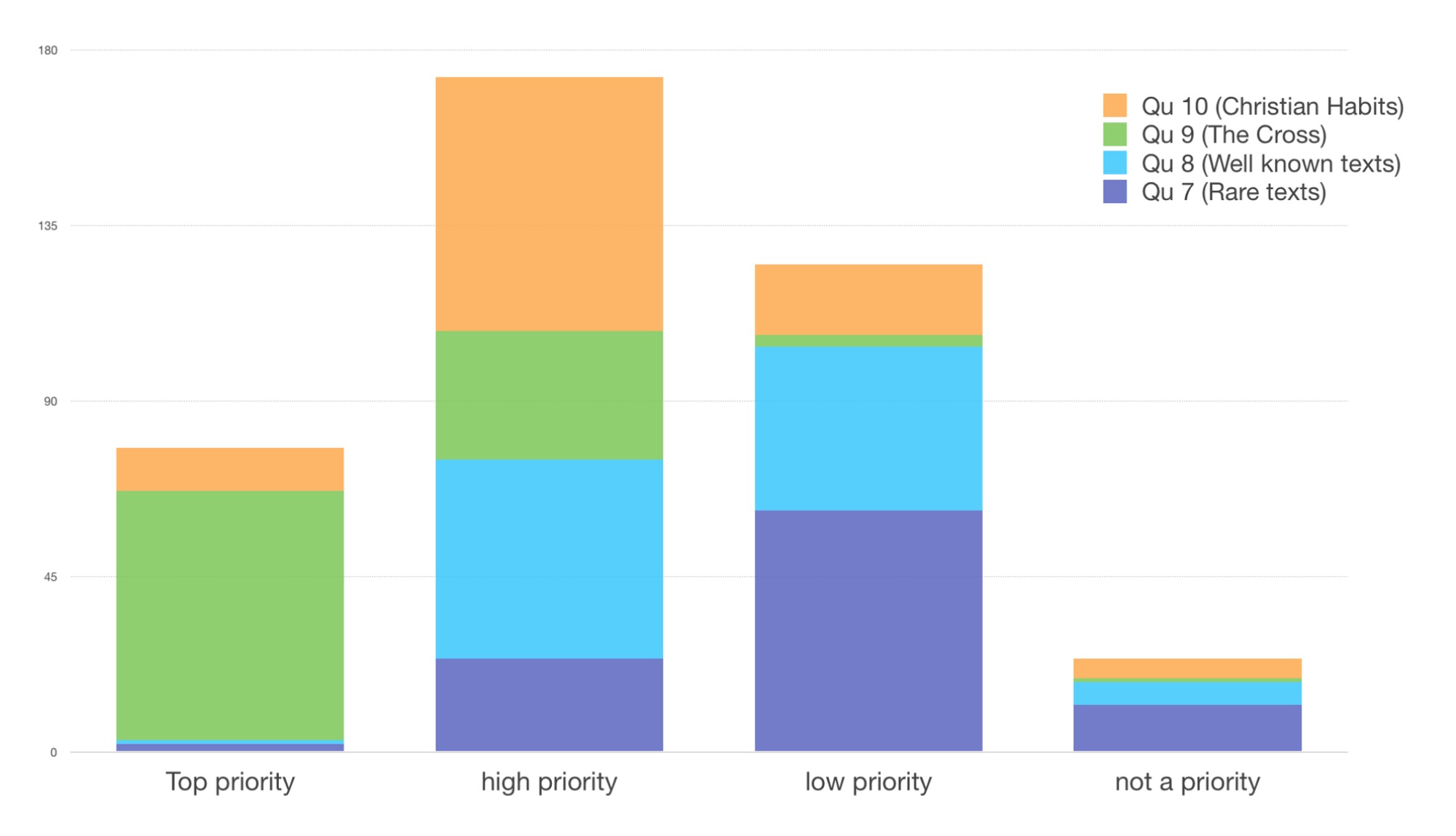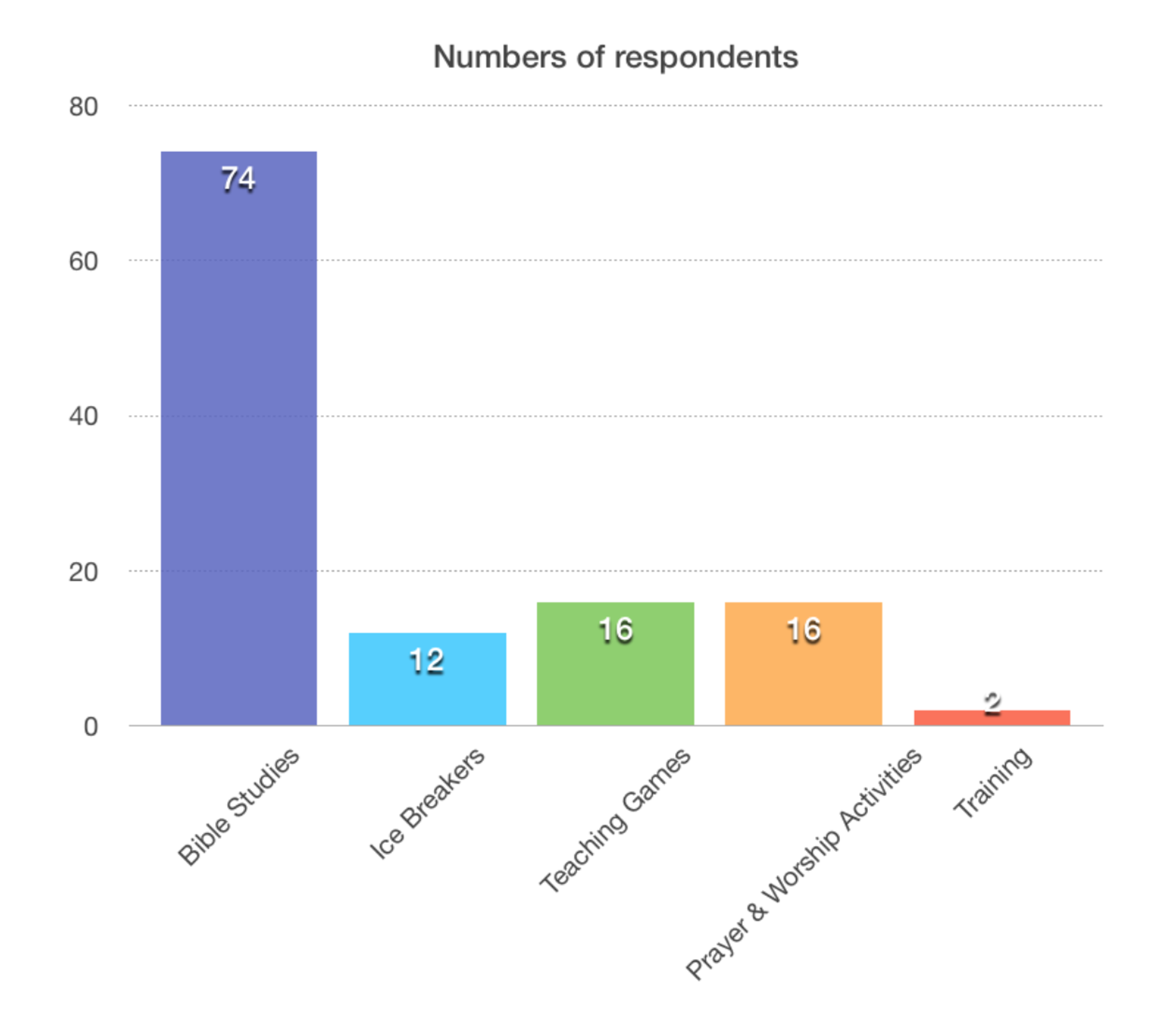The beating heart of youth ministry? Tim Gough from Youth Work hacks presents his research into small groups in youth work across the UK.
The beating heart of youth discipleship is not found in the grand scale event, the sleep deprived festival, or even the sweat-soaked mission trip; it’s in the weekly grind of small group ministry.
Small groups are totally my passion! I love the Bible-driven banter that doesn't seem to happen in any other place with young people. Relationships go deeper, challenges are met, and Jesus is just so tangible! I believe a well run and properly resourced small group project has the power to make or break a youth ministry.
All that said, small groups can be an absolute nightmare! They are riddled with relational landmines, peppered with gladiatorial personalities, and - if you don’t stay on the ball at multiple levels - can be completely hijacked by smartphones, random dabbing, or totally spontaneous theological whims.
"For many youth leaders, the small group is a delicate balancing act that readily drives them to distraction. It can be the most draining and daunting part of their week."
For many youth leaders, the small group is a delicate balancing act that readily drives them to distraction. It can be the most draining and daunting part of their week. This might explain why small group resources still hold court in the youth work section of the bookshop - and why digital subscriptions to session materials are booming!
This got me thinking: does the current plethora of small group resources really equip today’s youth workers in this essential part of their ministry? So I launched a mini-mission to find out from as many youth leaders as possible what their approaches, struggles and needs in small groups are.
I wrote 20 questions covering a broad range of areas, then presented them in a multiple choice, buzzfeed-style online quiz. I received between 100-140 responses to each question. The rest of this article will break down (somewhat factually I’m afraid) my findings, in the hope of
- helping youth workers to identify areas that they could develop,
- encouraging trainers to build more specific courses and,
- gently poking resource creators to try targeting their materials a little differently.
The Results
Warning! This will be a relatively mundane read from hereon in. If you don’t want to push through the numbers, then scroll down to the summary near the bottom! The questions broadly fit into 4 categories: timings and format, teaching priorities, people priorities, and preparation and strategy.
Timings and Format
5 questions examined how much time groups spend in different, well-established activities within a standard 2 hour small group session.
Question 6 revealed that 78% of groups, on average, run single activities for 15-30 minutes. This means that most groups have 4-6 individual elements running through each session. The other questions (16, 17, 18 and 19) focused on which of those elements took priority.
If you examine the data below, you will see that Bible Study elements (relative to what each leader considers ‘Bible Study’ to be) takes up most of the session at 15-60 minutes, with prayer and worship activities next (5-30 minutes) and Ice-Breakers and Games last, mostly between 5-30 minutes together.

Many of the popular small group resources on the market instead break activities up into smaller sections (5-15 minutes), and offer teaching games and activities rather than longer study sections. For better or worse, this is notably different to what is happening on the ground.
Teaching Priorities
This subset of four questions examined the simple biblical and theological priorities of the teaching content within small group sessions.
Rather than looking at youth relevant topics (sex, drugs, rock-n-roll etc.!) or specific theologies (Trinity, creation), the questions took a slightly broader approach. The options given explored teaching rare and unexamined parts of the Bible; well-travelled and more understood parts of the Bible; the theology of the Cross; and Christian habits such as prayer, worship and Bible reading.

The results were relatively predictable, but encouraging. Respondents were generally interested in teaching both well-known and rarer texts, saw teaching Christian habits as relatively important, and overwhelmingly believed that teaching the Cross should be the top priority.
People Priorities
This trickier set of eight, qualitative questions looked at who small groups generally cater for.
In question 1, there was a clear lean towards discipleship (59%) as a focus over evangelism (0%), with just over half saying they tried to do both. When both are in attendance, however, there is more of a balance, with just under half seeing non-believers as the priority, and 55% leaning towards believers.
"Looking at difficult personalities within a group, many struggle with young people who don’t take anything seriously (46%), and with those who never say anything (25%)"
Most see planning to reach multiple learning styles as well as those with additional learning and social needs as important (49% and 63% respectively). However, too large a portion (42%) said they only occasionally try to engage with multiple learning styles, and 28% admitted to having no strategies in place to work with those with additional needs. Most try to make each teaching point in two or three different ways (73% total), and when a question isn’t understood, most again (61%) will try and rephrase it in a different way.
When looking at difficult personalities within a group, many struggle with young people who don’t take anything seriously (46%), and with those who never say anything (25%). Rolling out more training on working with a variety of personalities might be worthwhile. Like this, for example!

Interestingly, 52% saw preparing material that taught their leaders as well as their young people to be a high priority.
Preparation and Strategy
75% of respondents said that they had a specific strategy for how their small group fit into their overall youth work programs. This is the biggest single result of the study, and is very encouraging to hear.
When prepping for sessions, the vast majority (52%) said they used a wide mix of resources including commentaries and text books, whereas only 24% said they used straight out-of-the-box resources. Despite modern trends in this very particular market, only 4% said they were using an online resource subscription.
It may be that the latter two options simply focus on the wrong things. Very few respondents said they needed help with ice-breakers (10%), teaching games (13%), or prayer and worship activities (13%) - which does seem to be the content priority of modern resources. Instead 62% said they were looking straight up with help for preparing Bible studies. This would explain why they are leaning away from session resources and turn instead to commentaries and study websites.

Summary
- Most groups run between four and six 15-30 minute elements within a 2hr session.
- The longest element is Bible study, followed by worship and prayer activities, followed by ice-breakers and games.
- The main teaching priorities are the Cross and Christian habits (prayer, Bible-reading etc.).
- Most groups target believing young people, but shift focus when unchurched young people attend.
- Small groups work hard at engaging different learning styles, but many struggle integrating those with additional learning and social needs.
- Young people who don’t take things seriously are the most difficult personalities in small groups, followed by those who never say anything.
- Leaders need a lot more help prepping Bible studies than creating games, ice-breakers, or prayer & worship activities.
Some Take-Aways
This is far from a perfect study; self-reporting is always subjective, the sample is relatively small, the the question set too narrow. There are, however, a couple of specifics we can take away from this.
First, youth leaders are naturally creative innovators, and generally need less help with finding relevant games and themed activities; there is a surplus of this already available right now. Instead, it would be great to have more resources produced that focus on robust Bible studies and theological commentary. These groups are about going deeper after all.
"Very few respondents said they needed help with ice-breakers (10%) ... instead 62% said they were looking straight up with help for preparing Bible studies."
Second, these resources should also help us develop specific ways of engaging those with additional needs or difficult personalities within existing groups. This will enable group leaders to create more inclusive environments.
Lastly, these results indicate a need for more small group training for youth workers. Leaders need help working with difficult personalities, creating broader teaching approaches, making elements flow more consistently, and finding a healthy balance when teaching a wide spectrum of maturities.
Let’s not leave our youth workers in the lurch! Small groups are well worth this effort.



